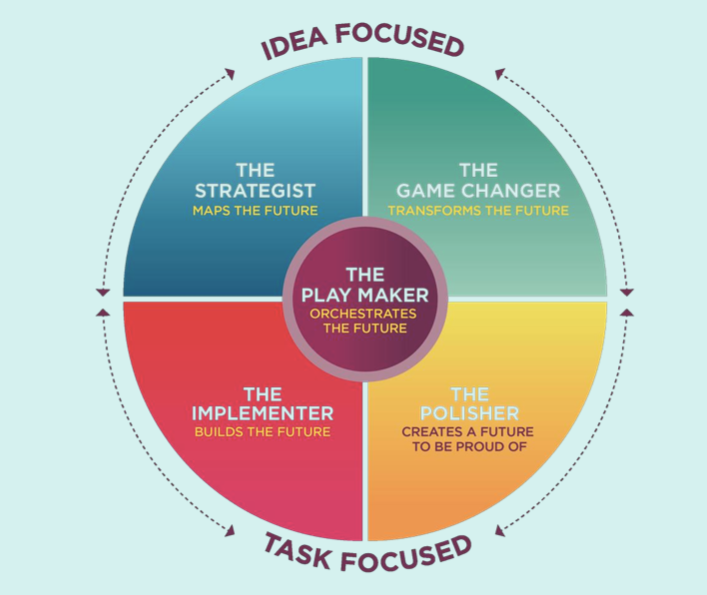Not-for-profits must use every resource to full capacity in order to make an impact. Clean-water supply charity, Water For People, and The GC IndexⓇ are working together to ensure their workforce is one such resource. Kirsten Levermore reports
Scarce resources. Two words that not-for-profit Water for People know better than most, as they strive to bring safe water and sanitation to 4 million people, all whilst working within the boundaries of limited funding and a staff scattered around the world.
When you have scarce resources, says Water for People chief executive Eleanor Allen, you have to get smart.
“Water For People is an organisation that operates in 11 countries,” explains Allen. “Cross-cultural communications increase the complexity of our work…which is already very complicated.
Having a common language and understanding of how we each contribute, and then contribute as teams, and lastly as a global non-profit is key to helping us be a game-changing organisation.”
The search for such a language and platform is led by Human Resources’ Michael Ksenyak.
“Water for People were looking for training that could develop skills in all of our employees around the globe”, he recounts. And, early last year, they arrived at a solution.
The Game Changer or GC Index, founded by entrepreneur Nathan Ott and psychologist Dr John Mervyn-Smith, is a new step in psychometric tests. A short online assessment, The GC IndexⓇ looks not for personality traits, aptitude or intelligence – it looks at where an individual’s, and thus a team’s, proclivities and impact truly lie.

The GC IndexⓇ Dimensions: a profile of individuals’ actual and potential contribution to their role, their team and organisational function
“The GC IndexⓇ gave teams direction and identities,” Ksenyak reveals. “And these agglomerations of people now know their strengths and weaknesses. It’s completely changed the way we communicate with each other and approach tasks and team selection.
Water for People now know how to structure a team or a collaborative project, and how to get the most out of our staff by placing them in the right roles and right environments for them.”
Having trialled The GC IndexⓇ with their headquarters in Denver, Colorado, Water for People are due to roll the assessment to their global locations – beginning with their new office in India.
“India is a very dynamic country in water and sanitation right now,” Allen explains. “Prime Minister Modi is putting importance into getting better service for all Indians, and government is investing in infrastructure. We have to move quickly to respond to this push. Our role is to help make sure these services last and to help entire communities change their behaviours to embrace this new future. Using The GC IndexⓇ on our team will help our employees identify how they can make an impact, and how they can contribute to helping Water For People transform to change the game in India in water and sanitation.”
It’s a big ask, the team suggest, that a programme that worked with 40 Coloradans will translate to an Indian field office, but Ksenyak is confident: “We had tried a few training and pilot programmes, but until The GC IndexⓇ we struggled to find something that would fit in with all of our cultures and across countries… Together with The GC IndexⓇ, we have created a global training programme and a language that can be rolled out across cultures, across our offices, and across the organization.”
Part of Ksenyak’s confidence comes from the concrete results Water for People are already seeing from the programme in Denver:
“The best thing I have seen so far has been a more interesting approach to how people are collaborating within their teams and with other individuals. They are even using new terminologies to communicate – an example,” Ksenyak offers, “is something that happened just last week: I received a low ‘strategist’ score on my GC assessment, so when I had to sit down and make a long-term plan, I knew to collaborate with someone with a high strategist score. They, naturally, enjoyed the work, and in turn improved efficiency of the work which ultimately produced a better plan.”
Water for People HQ plans to retake the assessment again next year, to see how employees have grown and changed. “I would like to compare the department and organisational goals for 2017 vs. 2018,” says Allen, of the venture, “and see how The GC IndexⓇ has influenced the setting of the goals and the ability to accomplish them [in the long term].”
Allen’s goal is simple but striking: improved communications and efficiencies in small teams by understanding individual team member’s strengths and ways of working.
“This,” she adds, “could segue into overall department enhancements, which leads to increased engagement and productivity on a global scale.”
To get involved with Water for People or hear more about how they are working with The GC IndexⓇ, see the website. Click here to find out more about The GC IndexⓇ, and how you can get your teams involved.
[button type=”large” color=”black” rounded=”1″ link=”https://www.linkedin.com/groups/5125875″ ]JOIN THE CONVERSATION[/button]

